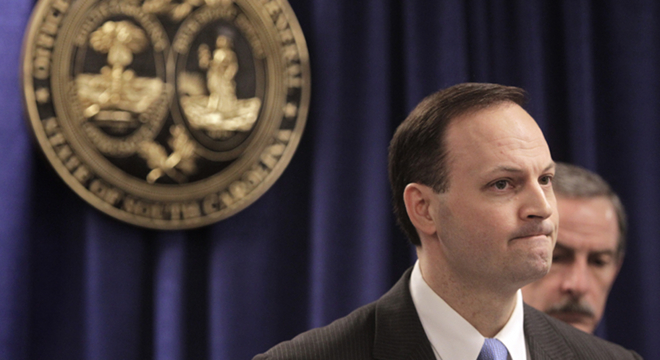Updated: August 27, 2012, 6:15 PM
WASHINGTON — Neither a student ID nor a military ID will prove someone is a resident of South Carolina, but the attorney general there said on Monday that one of those forms of identification is still somehow superior under the state’s contested voting law.
Speaking with TPM during a break in the federal trial over whether the law violates the Voting Rights Act, Attorney General Alan Wilson defended its provision that allows voters to use things like military identification and passports to cast a ballot but bans them from using student IDs.
Wilson said the reason was that students were largely “transient” and a school identification card “doesn’t prove you’re a resident.”
He said voters using passports and military IDs, even those with out-of-state addresses, were known to be residents of the state because they were registered to vote in the state.
When TPM pointed out that college students who had out-of-state licenses were in the same situation, another attorney on South Carolina’s team jumped in to contradict Wilson, insisting the state law was about proving identity rather than residency.
After that line of questioning, Wilson said he wouldn’t be speaking with reporters about the case until closing arguments on Friday.
South Carolina’s voter ID law actually specifically says the photo identification requirement has nothing to do with establishing residency and is instead specifically to “confirm the person presenting himself to vote is the elector on the poll list.” From the law: “Any address listed on the identification is not determinative of an elector’s domicile for the purpose of voting.”
Earlier in the day, state Sen. George E. “Chip” Campsen said he heard accounts of “hundreds of students registered at the same address” (he didn’t say whether those were dorm addresses) and accused college students of “domicile shopping” by voting in South Carolina over their home state.
Unlike voter ID laws in several other states, photo identification from state colleges and universities are not accepted under the law. The NAACP intervened in the case on behalf of five African-American students from Benedict College: Kenyda Bailey, Charmaine Beal, Kiaka Davis, Evin Percival and Sequioa Waller. All are registered to vote in Richland County and would have liked to use their student identification to cast a ballot.
Republicans in several states have targeted student voters before. The head of the Republican party in Maine accused college students who voted in the state but paid a higher out-of-state tuition rate of committing voter fraud. A Republican official in New Hampshire called college students “foolish” while pushing for laws that would prevent them from voting. Wisconsin’s voter ID law forces students with out-of-state licenses to give up their driver’s license and get a free form of Wisconsin identification or pay a fee to get a state driver’s license so they can both vote and drive.









